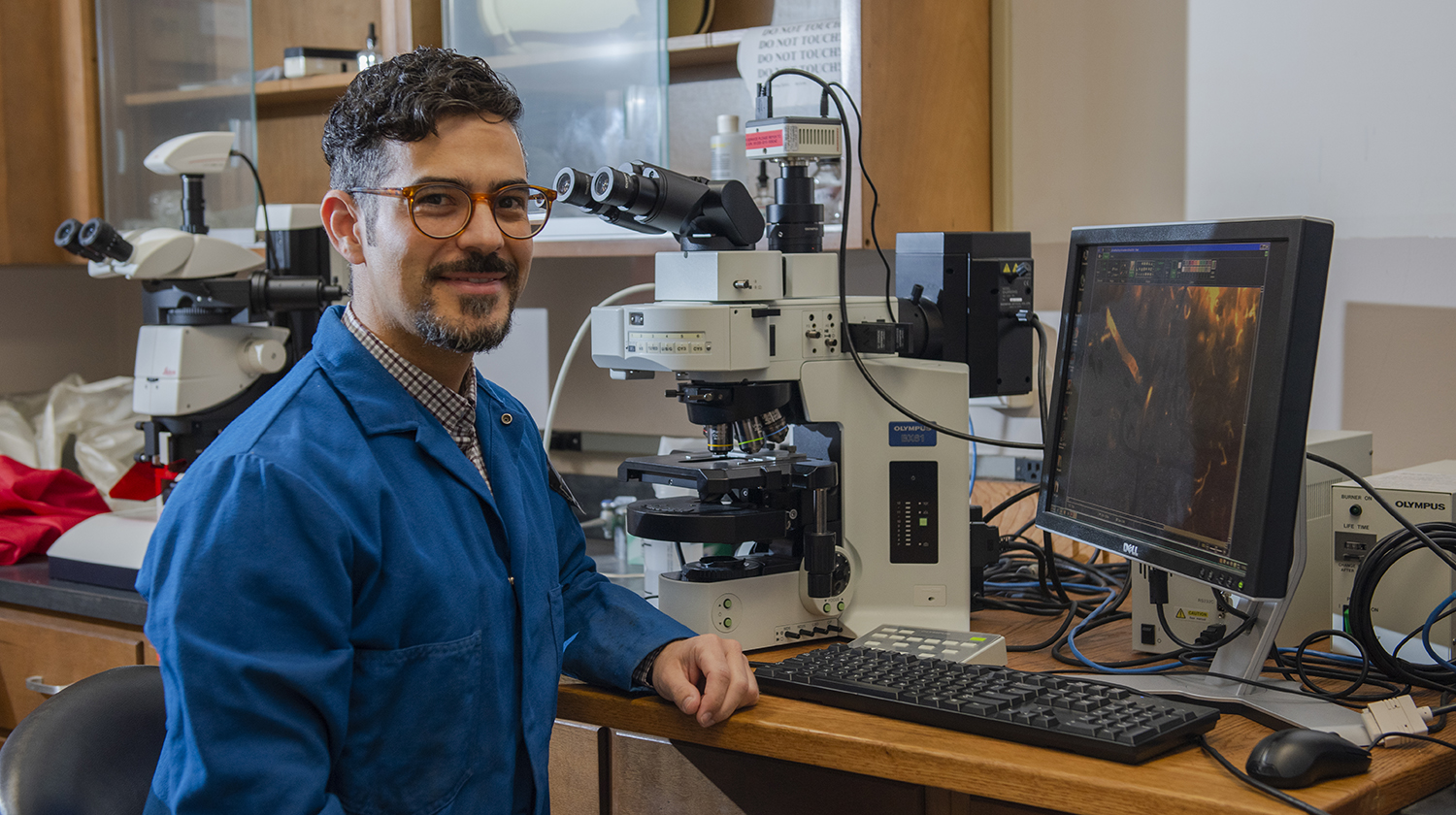
Philip Vieira, assistant professor of psychology at California State University, Dominguez Hills, has been awarded a $438,000 multi-year grant from the National Institute of Health (NIH) to conduct research into biosensor technology that could lead to more precise prescribed drug dosage and, potentially, reduced addiction.
Titled “High Precision Pharmacokinetic Measurements in Brain Using a Novel Aptamer-Based Biosensor,” the grant will enable Vieira to monitor and evaluate how the body interacts with drugs as they cross the blood-brain barrier (BBB), a semipermeable border that separates the circulating blood from the brain and cerebrospinal fluid in the central nervous system.
The NIH grant pairs early career researchers with their more advanced peers to work together to establish a new direction in their research. Vieira began contributing to the development of the new biosensor technology in 2014 as a post-doctoral fellow at UC Santa Barbara (UCSB) working with Professors Tod Kippin and Kevin Plaxco. This next phase of their research will continue in collaboration with UCSB and CSU Los Angeles (CSULA).
“This biosensor is revolutionary. The speed at which this tool can detect concentrations of a drug is faster than anything out there,” Vieira said. “Usually, when you do these kinds of tests you have to draw cerebrospinal fluid samples from the brain for later analysis in the laboratory, rendering them slow and cumbersome and greatly limiting their temporal resolution. This tool can tell us in seconds what the concentrations are as they enter the brain.”
Vieira explained that the rate in which a drug interacts with the brain is related to its potential for addiction, and that it is vital to improve the monitoring of drug pharmacokinetics (the movement of drugs in the body) to increase drug efficacy and mitigate toxicity, which would help address the increase of addiction caused by prescribed therapeutic drugs.
The biosensor is able to detect drug concentrations in the body as it is absorbed, circulated, metabolized, and excreted using highly selective aptamers, which are single DNA strands that are artificially selected to preferentially bind to specific targets.
“Theoretically, aptamers may be developed to bind to anything. For this project, we will be using cocaine and oxycodone as targets for the biosensor to measure,” said Vieira. “This capability makes our research even more unique and exciting.”